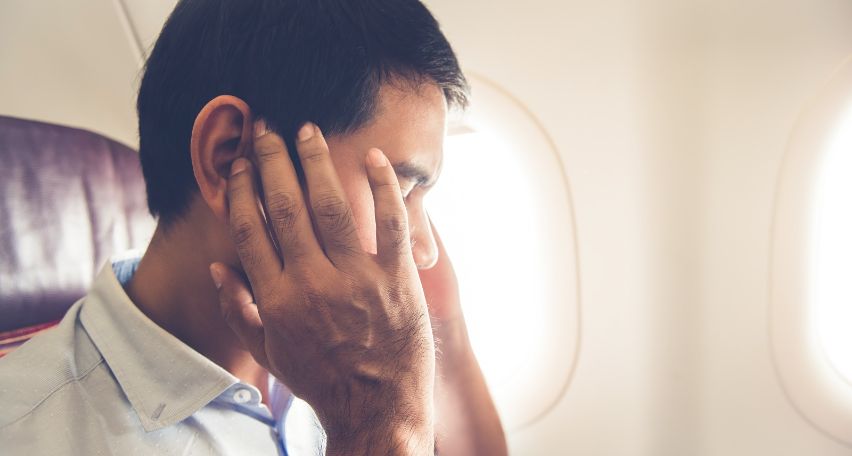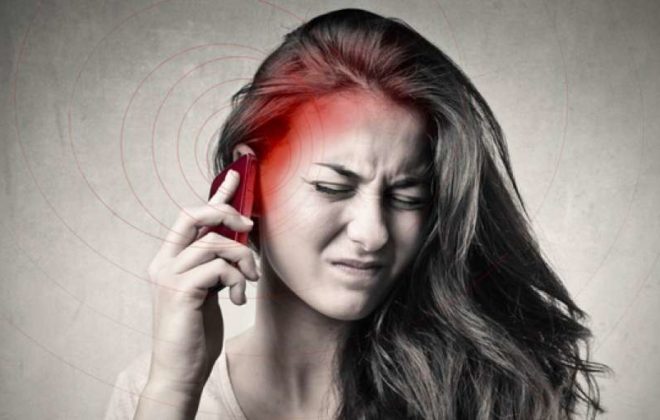Get rid of the fullness in your ears
According to WHO estimate, globally, more than 466 million people have disabling hearing loss and ear infections are the leading cause of it. Of this, around 432 million (93% of the population) are adults (242 million males and 190 million females) and 34 million (7% of their population) are children. Approximately 1/3 of the population (over 65 years) is impacted by hearing loss. Source: MarketandMarkets
Ooch, it hurts and my ears seem full. You may be suffering from ear pressure. What is it? This is a very common problem that affects children and adults alike. Generally, the air pressure inside the middle ear should be the same as the outside environment. But, when the pressure difference sets in, then you begin to experience fullness inside your ears. You might also feel that your ears are clogged and in rare cases, it is accompanied by pain. This is what ear pressure is all about.
Generally, you do not feel the pressure difference because of the role played by the Eustachian tubes. These tubes help to equalize the pressure, drain liquids and thereby prevent infections. When this tube is unable to function to the optimum, you will feel pressure in your ears.
What is Barotrauma of the ear?
As stated earlier, the pressure in the ear is disturbed when there is a block in the Eustachian tube. At times, the pressure or feeling of fullness will be felt when the tubes become inflamed. Now, we realise the importance of the tubes which reach the throat from the back of your middle ear. The tube enables the outside air to enter your middle ear. When this action is affected, air fails to reach the middle ear. This block in airflow causes the Eustachian tube to become inflamed.
In other words, pressure begins to build in the space behind the eardrum and upsets the air pressure balance in the middle ear. It is then the impact is felt and you begin to feel pain or intense pressure in your ears. Fortunately, this condition does not damage the eardrum.
Causes of ear barotrauma
You will experience this feeling while flying on an aeroplane or while driving in the mountains. This condition is also popularly called ‘Airplane ear’ or ear barotrauma. Some of the factors which lead to this condition include:
- Air travel
- Scuba diving
- When you hit the bottom of the swimming pool
- Driving through the mountains
- When you use an elevator
- When you happen to be at the site of an explosion
While the above-said situations cause ear barotrauma, it is not a very serious condition and can be easily dealt with. When you are affected by ear barotrauma, there is pain and discomfort in one or both ears. The plugged-up feeling is inevitable. Dizziness, ringing in the ears and mild hearing loss are the other rare symptoms.
Rarely, fluids will ooze from your ears. But if it happens, unfortunately, this is a sign to let you know that your eardrums have been affected badly or ruptured.
Allergies, other causes
- Allergies or upper respiratory tract infections (sinus, cold and sinus congestion) will cause a stuffy nose and cause the nasal membranes to swell. Stuffy ears are caused when these swollen membranes reach into the Eustachian tube and block it, causing a stuffy ear
- Otitis media, an infection of the middle ear causes ear pressure, pain and fluid discharge
- Swimmer’s ear or Otitis Externa also causes this condition due to the trapping of moisture or water in the ear canal
- Non-functioning or improper functioning of the Eustachian tube is another factor that might cause fluid build-up, pain and pressure
- Deviated septum is an anatomical abnormality that affects the Eustachian tube function
- An external factor that irritates the Eustachian tube and causes pain is smoke. Prolonged exposure to smoke will cause pain and fluid retention inside the ears
Remedies to relieve ear pressure
There are different ways to relieve ear pressure. If the middle ear is affected by a bacterial infection, it should be treated with antibiotics such as amoxicillin. Ear drops or oral drops can also be used, in the case of a swimmer’s ear.
Doctors also recommend a saline nasal rinse to clear up the nasal passages. They would also suggest a humidifier if there is pain or pressure due to the sinus. Some common tips on how you can open up your Eustachian tube and relieve pressure:
- Chew gum
- Infants can be given a bottle or pacifier
- You will have to yawn or swallow frequently
- Blow your nose gently
- Pop your ears
- If you are taking up air travel, be awake during take-off and landing. Earplugs will help minimize changes
- If you want to go ahead with scuba diving, despite this problem, be sure to go down or come up slowly. Never take up the venture if you are sick or if you are suffering from any allergy
If the condition does not resolve on its own or despite taking up the above-said measures, people go in for surgical procedures. Called Myringotomy, it is a minor procedure where a small cut is made in the eardrum to drain the fluids. This will help to equalize the pressure.
But, if the condition turns serious and the eardrum ruptures, doctors will have to reach out to the knife for reconstruction surgery. The doctor checks the ear with an Otoscope before going ahead with the operation. Assess the situation and take medical help quickly, if you feel it is an emergency. Never fail to take up a hearing test after you have recovered fully to check your ear health.




